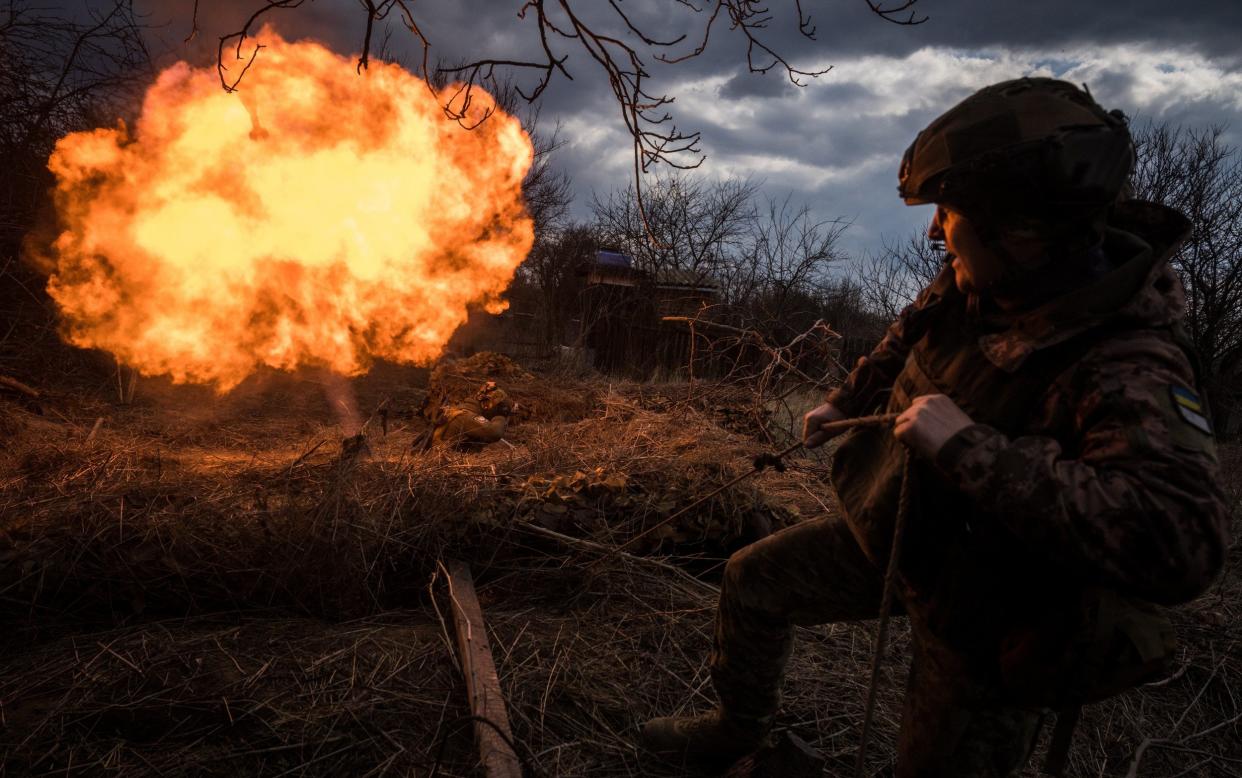Top general warns Ukraine’s front-line situation is ‘significantly’ worsening

Ukrainian forces’ positions along the front line have “significantly worsened” under intensified Russian assaults, its top general has admitted.
General Oleksandr Syrsky said that Russia has increased its attacks since Vladimir Putin won a presidential election in March and as warm spring weather has dried out previously untraversable muddy battlefields.
“The situation on the Eastern front has significantly worsened in recent days,” he said on the Telegram social messaging app on Saturday.
“The enemy is increasing its efforts by using new armoured vehicle units which are periodically achieving tactical success.”
Gen Syrsky, who has been the commander-in-chief of Ukraine’s military since February, said Russian forces were trying to break through west of Bakhmut and Avdiivka in the Donbas region using “dozens of tanks”.
He added: “This is facilitated by warm, dry weather, which has made most of the open areas of the terrain accessible to tanks.”
Unlike Ukraine, Russia is not suffering from recruitment or arms shortages.
Analysts say that it can soak up the estimated 1,000 casualties that it is taking a day and can fire roughly five or six times as many shells and missiles as Ukrainian forces.
Troops advance as US military aid is held up
Russian military bloggers agreed with Gen Syrsky’s assessment. Rybar, one of the best-read Russian military Telegram channels with 1.2 million subscribers, said that Russian forces were sweeping through several villages.
It added: “To the west of Avdiivka, Russian troops are advancing on a broad front, building on their success.”
The bulk of the West’s military aid has been held up by politics in the US, where Republicans want £47 billion of promised military aid to Ukraine linked to strengthening the US-Mexico border against illegal immigrants.
One of Kyiv’s top military commanders told The Telegraph this week that Ukraine was now relying on drones donated by volunteers to hold back Moscow’s forces.
Some European military kit is still getting through, however.
On Saturday Germany said it would send another US-built Patriot missile defence system to Ukraine. President Volodymyr Zelensky thanked Berlin and said it came “at a critical time for us”.
Analysts say that Russia may be setting up for a major assault later this year that aims to capture a bigger prize, possibly the entire Donbas region or even Kharkiv.
The key city in north-east Ukraine lies only 20 miles from Russia’s southern border and 160 miles from the front line. Russian forces had tried to capture it during the first few weeks of the war two years ago but were beaten back during a Ukrainian offensive in the summer of 2022.
Attacks aim at forcing out civilians
The population of Kharkiv has now recovered to about 1.3 million people, from 300,000 after the initial Russian invasion when hundreds of thousands of people fled.
Oleksandr Filchakov, the region’s top prosecutor, said Russia was targeting civilians and that 97 people had already been killed in the Kharkiv region this year. “The attacks are mainly aimed at intimidating the civilian population,” he told Reuters. “They’re trying to make people leave the city, leave their buildings, homes, apartments.”
He said Russia was also using Kharkiv to fine-tune modified bombs and had test-fired a new kind of aircraft-launched guided bomb at least six times, a weapon he described as a “unified multi-purpose guided munition”.
People living in the city told The Telegraph that missile and bomb attacks have intensified and that while they are determined to stay for as long as possible, everybody has a “Plan B” to flee.
“You have to be prepared to leave Kharkiv at any time but we prefer to stay for now. If everybody leaves it means we lose the city to Russia,” said Eugene Ovdiyuk, an IT specialist who manages two teams of developers in the city.
He listed the various contingency plans and equipment that he has set up to allow him to work through power cuts and daily air raid alerts, including bomb shelters with backup generators, power sources in his apartment and access to a Starlink satellite wifi terminal.
Teacher Victoria Sushanova also said that it was important to show resilience and adapt. She is the co-founder of the Honey Academy, a network of private schools and kindergartens. She explained how she has set up classrooms in windowless bunkers for children to evacuate to within one minute of an air raid warning.
“The war is continuing. Kids grow up. We cannot stop time,” she said. “Education is very important. We can’t lose time and we cannot lose a generation.”vasion of Ukraine.

 Yahoo News
Yahoo News 
